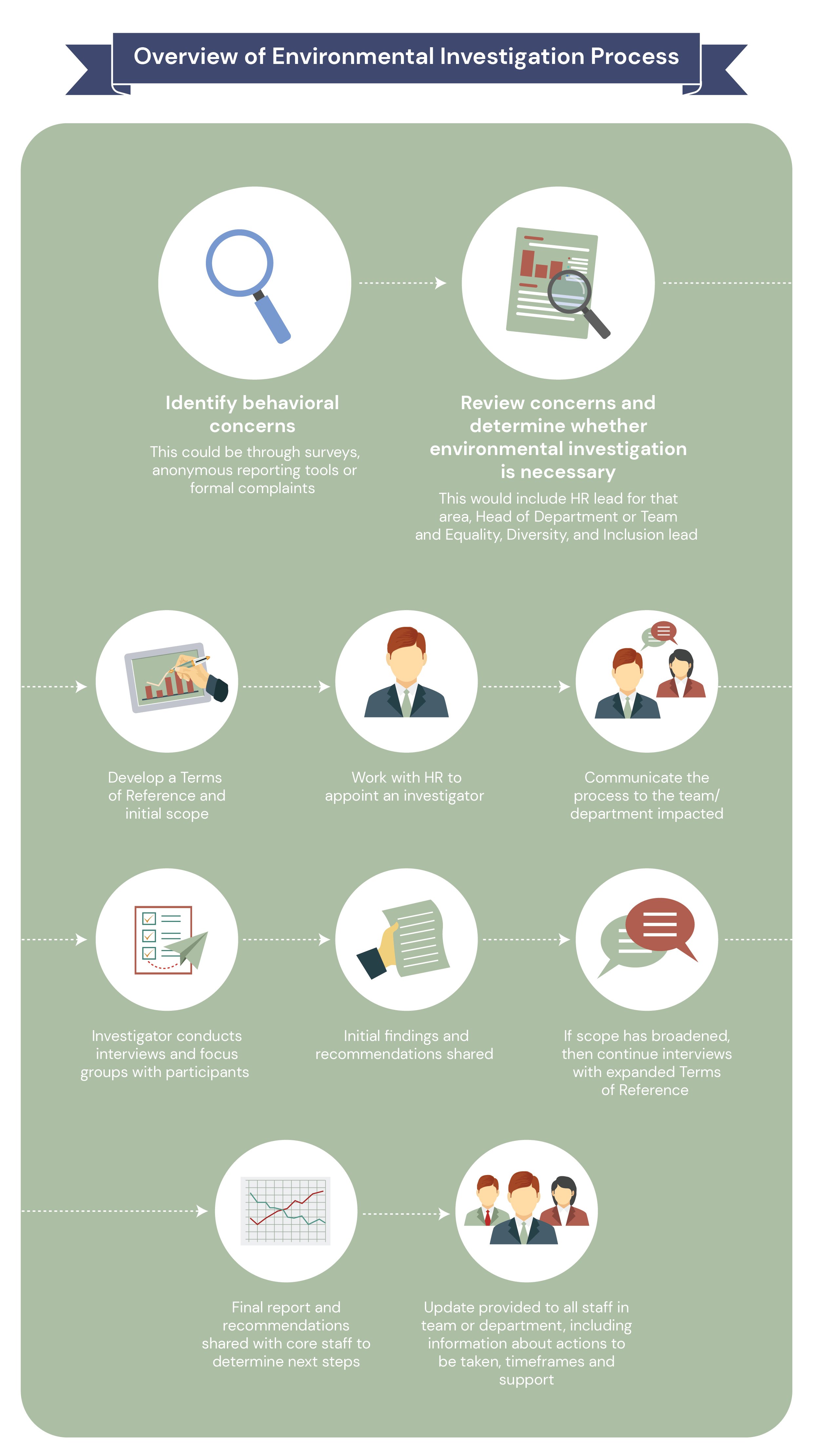 Image 1 of
Image 1 of


Environmental Assessments Framework and Training
An environmental assessment is a process that allows an organisation to understand behavioural or well-being concerns impacting employees in a workplace or students in an educational setting. This protocol has been designed to aid organisations hoping to engage in early intervention to prevent the escalation of unacceptable behaviours.
The protocol includes:
Overview of environmental assessments and how they fit within a broader prevention strategy
Principles to guide an environmental assessment
A discussion on legal obligations
Principles for risk management and a risk matrix
Trauma-informed practice guidance
Guidance and recommendations for investigations including follow up
Three case studies
Templates for a term of reference, communications and final report
This offering includes the option to train staff to lead this process, you can select 1, 2 or 8 employees to be trained. To arrange an organisational session, please email kelsey@kelseypaskeconsulting.com
The training is nine hours which can be split over two or three smaller sessions, followed by a 1.5-2 hour debrief 2-3 weeks after initial delivery. Training content will cover an overview of the protocol and include key skills necessary to lead an environmental assessment including trauma informed practice, managing risk and identifying and designing behavioural interventions.
An environmental assessment is a process that allows an organisation to understand behavioural or well-being concerns impacting employees in a workplace or students in an educational setting. This protocol has been designed to aid organisations hoping to engage in early intervention to prevent the escalation of unacceptable behaviours.
The protocol includes:
Overview of environmental assessments and how they fit within a broader prevention strategy
Principles to guide an environmental assessment
A discussion on legal obligations
Principles for risk management and a risk matrix
Trauma-informed practice guidance
Guidance and recommendations for investigations including follow up
Three case studies
Templates for a term of reference, communications and final report
This offering includes the option to train staff to lead this process, you can select 1, 2 or 8 employees to be trained. To arrange an organisational session, please email kelsey@kelseypaskeconsulting.com
The training is nine hours which can be split over two or three smaller sessions, followed by a 1.5-2 hour debrief 2-3 weeks after initial delivery. Training content will cover an overview of the protocol and include key skills necessary to lead an environmental assessment including trauma informed practice, managing risk and identifying and designing behavioural interventions.
An environmental assessment is a process that allows an organisation to understand behavioural or well-being concerns impacting employees in a workplace or students in an educational setting. This protocol has been designed to aid organisations hoping to engage in early intervention to prevent the escalation of unacceptable behaviours.
The protocol includes:
Overview of environmental assessments and how they fit within a broader prevention strategy
Principles to guide an environmental assessment
A discussion on legal obligations
Principles for risk management and a risk matrix
Trauma-informed practice guidance
Guidance and recommendations for investigations including follow up
Three case studies
Templates for a term of reference, communications and final report
This offering includes the option to train staff to lead this process, you can select 1, 2 or 8 employees to be trained. To arrange an organisational session, please email kelsey@kelseypaskeconsulting.com
The training is nine hours which can be split over two or three smaller sessions, followed by a 1.5-2 hour debrief 2-3 weeks after initial delivery. Training content will cover an overview of the protocol and include key skills necessary to lead an environmental assessment including trauma informed practice, managing risk and identifying and designing behavioural interventions.
